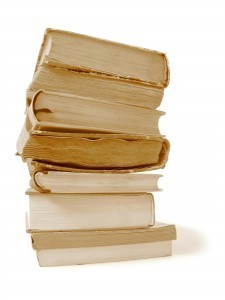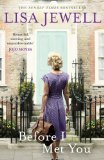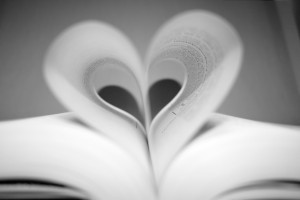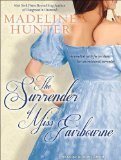Hannah Fielding's Blog, page 143
November 10, 2012
The romance of printed books
For the past years a fierce debate has been raging among readers, writers and those in the publishing industry: ebooks versus printed books. Most now agree that there is some place for both. But recently I was reading a romance novel on the Kindle, and I was thinking about how different the experience is to reading a physical-format romance novel. The book was wonderful, but for me, something of the feeling that a romance novel creates in me got lost in reading the story on an electronic device.
Does the medium in which the book is delivered affect the sense, the genre fit and the reading experience thereof?
I read romance novels, and have done since childhood, because I love the escapism they afford and the warm, glowing feeling they give me. But looking at the shelves of books in my home, picking out a favourite novel – MM Kaye’s The Far Pavilion – breathing in the scent of the pages, feeling the weight of the book in my hands, flicking through and scanning the static, unchanging font that has been printed on those pages for so many years, I find myself thinking that the romance that this book conjures in my mind and heart when I read it is entwined with the physical object of the book itself.
The printed book has a romanticism all of its own, for its history. When you hold a book, you’re following in the footsteps of ancestors stretching far, far back – treasuring what society has long treasured. The object is satisfying – it appeals to the senses, it creates a mood: curling up in an armchair before a log fire with a Kindle just doesn’t feel the same as having a book nestled on your lap. It has a certain look that pleases – shelves and shelves of books are a comfort; like always having dear friends nearby. And there is an instant accessibility. When you want to reread an old favourite, you can pick it up easily and flick to your favourite scene whose page you’ve marked.
Finally, I think it is the permanency of the paper book that creates, for me, the more romantic experience. The book is fixed. The text is where it is for ever. The cover is there, in all its colour. The pages are real, tangible. In the ebook, in which nothing is permanent and text shifts, there is a chasm between you and the book that doesn’t not exist when the book is physically real. An intimacy, you may say, is lost.
What do you think? Do you find it more pleasurable to read a book on paper rather than on-screen? Do you connect more? Have more sense of romance? Do you prefer some kinds of book, such as erotic fiction, to others in the e-format? I’d love to hear your thoughts.
November 9, 2012
The top 20 songs for romance
The online music service Spotify recently ran a survey to discover people’s favourite songs for creating a romantic atmosphere. The results make for an eclectic top 20 list, which showcases that we all have our own individual tastes when it comes to the romantic mood. Here they are:
1. Patrick Swayze and Wendy Fraser – ‘She’s Like The Wind’
2. Marvin Gaye – ‘Sexual Healing’
3. Ravel – ‘Bolero’
4. Berlin – ‘Take My Breath Away’
5. Barry White – ‘You See The Trouble With Me’
6. Marvin Gaye – ‘Let’s Get It On’
7. The Righteous Brothers – ‘Unchained Melody’
8. Celine Dion – ‘My Heart Will Go On’
9. Serge Gainsbourg – ‘Je T’aime…Moi Non Plus’
10. Whitney Houston – ‘I Will Always Love You’
11. Aerosmith – ‘I Don’t Want To Miss A Thing’
12. Kings Of Leon – ‘Sex On Fire’
13. Mary Martin- ‘The Sound Of Music’
14. Tchaikovsky – ‘1812 Overture Op.49’
15. Olivia Newton-John – ‘Hopelessly Devoted To You’
16. Donna Summer – ‘I Feel Love’
17. Boyz II Men – ‘I’ll Make Love To You’
18. Abba – ‘Mamma Mia’
19. Tom Jones – ‘Sex Bomb’
20. John Williams – ‘Main Theme From Star Wars – Instrumental’
It struck me, looking through the list, how many songs relate to seminal romantic scenes in popular culture. Here are some reminders for you, along with links to videos in case you fancy a few minutes of romantic, misty-eyed escapism:
The number one song, ‘She’s Like the Wind’, is of course ever synonymous with Dirty Dancing. http://www.youtube.com/watch?v=lU9p1WRfA9w
‘Bolero’, for me, will always call to mind Jane Torvill and Christopher Dean dancing on ice at the Olympics to achieve a legendary perfect score. http://www.youtube.com/watch?v=E8obUdxnTlc
Berlin’s ‘Take My Breath Away’ is the theme song to Top Gun. http://www.youtube.com/watch?v=NEOem7U2LPE
Ghost and that memorable pottery scene – to the music of ‘Unchained Melody’. http://www.youtube.com/watch?v=CXfxUVjHFl0
Who can think of Titanic without seeing Celine singing ‘My Heart Will Go On’ at the bough of the boat? http://www.youtube.com/watch?v=saalGKY7ifU
Whitney Houston’s ‘I Will Always Love You’, that chart-busting sensation, was of course the title track to The Bodyguard. http://www.youtube.com/watch?v=3JWTaaS7LdU
‘I Don’t Want To Miss A Thing’ was the theme song to Armageddon. http://www.youtube.com/watch?v=Vo_0UXRY_rY
Olivia Newton-John – ‘Hopelessly Devoted To You’, from the classic movie Grease. http://www.youtube.com/watch?v=W237aCixRj8
And finally, the Star Wars theme music, whose appearance in the chart I have to confess mystifies me a little! But then listening to this clip, I see the beauty: http://www.youtube.com/watch?v=jFcuT4Nbcb8
I wonder why so many of the films featured here are not current – the 1980s features predominantly. Do they not make films with movie soundtracks as they used to? I also wonder why so many favourite songs have this popular culture link. I think it is because we connect more with music when we’ve been told a story that goes beyond the notes – a compelling, passionate love story. Now someone just needs to invent book soundtracks. I can just imagine how fiery the Burning Embers theme song would be…
November 8, 2012
Book review: Before I Met You by Lisa Jewell
From the blurb:
Having grown up on the quiet island of Guernsey, Betty Dean can’t wait to start her new life in London. On a mission to find Clara Pickle – the mysterious beneficiary in her grandmother’s will – she arrives in grungy, 1990s Soho, ready for whatever life has to throw at her. Or so she thinks…
In 1920s bohemian London, Arlette – Betty’s grandmother – is starting her new life in a time of post-war change. Beautiful and charismatic, Arlette is soon drawn into the hedonistic world of the Bright Young People. But less than two years later, tragedy strikes and she flees back to Guernsey for the rest of her life.
As Betty searches for Clara, she is taken on a journey through Arlette’s extraordinary time in London, uncovering a tale of love, loss and heartbreak. Will the secrets of Arlette’s past help Betty on her path to happiness?
For me, curling up with a Lisa Jewell novel is like curling up with a coffee in front of a warm fire – comforting, cosy with the guarantee that it will warm the cockles of my heart. This book did not disappoint. Well-written, vivid and at once warm and funny and poignant and moving. It’s a more mature read than some of Lisa’s earlier novels – even with a relatively young heroine, it is less ‘chicklit’ in feel and deals with some serious rather than frivolous themes.
I especially enjoyed the dual points of view explored in the book – of Arlette, a young woman in 1920s London, and her step-granddaughter Betty, in 1990s London. There are wonderful parallels and also juxtaposition of the women’s experiences that made for a compelling and powerful read. The characters are multi-faceted and realistic and likeable, and I was rather sad by the end of the book that their story had come to an end.
For me, the best part of this book is the sense of place that the author creates. I love the island of Guernsey, so I enjoyed the descriptions of that setting, but it is London that really comes alive on the pages. Having read this book soon after finishing The Paris Wife, which depicts 1920s Paris, I found myself drawing parallels and enjoying the glimpse of life in bohemian London during that era. I think the author does a marvellous job of capturing the heart of London – Soho – without over-romanticising it. Take the following extract:
All she knew was that the day was dying and the night was giving birth to itself, and there was something electric, something magnetic pulling her down Carnaby Street, past self-consciously crazy boutiques, past grimy pubs, through the throngs of tourists and teenage girls just like her, girls from somewhere else with overblown ideas of themselves, girls having a special treat with dowdy mothers and bored father, a day in town with an early lunch at Garfunkel’s, overfilled bowls from the salad bar, tickets for a West End show tucked safely in Mum’s bum-bag. It wasn’t real. Even to Betty’s immature, small-town eyes she could see through the fakery and the stage setting. There was something both murky and beguiling beyond this plastic street of Union Jacks and Beatles posters, something grimy and flittering.
By the end of the book, I found myself wanting to visit London and the locations that feature in the story, so alive did the characters feel to me.
Of course, at the heart of the story is romance – that of Arlette and of Betty – and indeed all sorts of relationship are explored in the novel. The result is a touching and memorable book that I recommend to any reader who enjoys romance.
Before I Met You is available now from Amazon; click on the book cover below to visit the store.
November 7, 2012
A duck’s tale
November 6, 2012
Ten top reasons to pick up a romance novel
I’ve been reading romance novels from an early age. In my teens, I would read the French equivalents of Silhouette and Mills & Boon, and I loved being swept away into fantasy worlds where love always won out. Since then, I couldn’t possibly count how many romance novels I have read, but I do know this: each has been time well spent. So today I’m sharing with you ten good reasons to read romance.
Portable happiness! Wherever you are – in the bath, waiting for the pasta to boil, on the bus, tucked up in bed – you have the means to drift away into a place that makes you feel happy and in touch with your dreams.
You may learn something that you can apply to your own love life. You may feel more romantic, or have an idea for a romantic date. Or, depending on how passionate and risqué the book is, you may learn something that pleases your partner: midwives are talking about an imminent Fifty Shades of Grey baby boom…
It’s an easy read. I love the likes of Dickens and Victor Hugo and Proust, but they’re hardly light, entertaining reading. Romance novels are usually easy to digest, and can be dipped in and out of when you’re in the mood.
You know that if you like this book, there are bound to be others in a similar vein you can enjoy, including those by the same author. That helps with the sad and empty feeling when you finish a story you’ve loved.
Whatever genre you prefer, you can find a romance novel. Paranormal, science fiction, historical, humorous, literary – writers imbue their works with le grand amour across the board.
Television isn’t what it used to be! You’re not always guaranteed the same feel-good ending. I can’t be the only woman who hated the ending of Titanic… Books are where the pure romance remains.
You get to experience a touch of magic, magic in which you can believe.
Dare I say it? It’s a means to transport yourself to an alternate universe where women love alpha males and can enjoy being protected and cared for. You can’t expect your modern-day partner to be a Casanova; but in a romance novel, your fantasies can come true.
Got flu? Waiting for ages at the dentist’s? Stuck indoors while a storm howls outside? When you’ve a good romance novel by your side, such irritants become opportunities to curl up and read.
Last but not least, the happy-ever-after. In a world full of stress and heartache, romance novels represent an escape into your imagination where you can relax into the knowledge that the ending will be a happy one.
So without further ado, head over to Amazon or to your local bookshop and treat yourself to a little slice of warm, fuzzy, inner glow. To quote that great romantic crooner Burt Bacharach:
What the world needs now is love, sweet love
It’s the only thing that there’s just too little of…
November 5, 2012
Favourite poem: ‘The Autumn’ by Elizabeth Barrett Browning
There is something so deliciously romantic about autumn. It is the colours and textures, I think, that most appeal to me. What can be more romantic than walking through woods on an autumnal afternoon, wrapped up in a hat and scarf and winter coat newly liberated from their summer storage, kicking up kaleidoscopic leaves and revelling in the dry crackling underfoot, watching each gust of wind send leaves spiralling through the air like fairies? There’s a quietness to autumn, I always think – a sense of sadness in the air that what was once healthy and verdant and green is now dying; that with each day the weather cools; that an end is drawing nigh – the end of the year.
Elizabeth Barrett Browning, one of my favourite poets, beautifully captures this sense of poignancy that can overcome one on an autumnal walk in her poem ‘The Autumn’. I love her reference to the musing heart, which is very much a part of me when I go for a walk. She taps into the sadness you feel as you remember the summer that has now passed. Really, she is writing of that which humans most struggle to accept: change. But oh, what a wonderful, positive, jubilant ending – a call to action, to throw your arms wide and welcome the autumn and the winter creeping in its wake. I hope that, having read this poem, you too can look out o’er vale and hill and ne’er be desolate.
The Autumn
Go, sit upon the lofty hill,
And turn your eyes around,
Where waving woods and waters wild
Do hymn an autumn sound.
The summer sun is faint on them —
The summer flowers depart —
Sit still — as all transform’d to stone,
Except your musing heart.
How there you sat in summer-time,
May yet be in your mind;
And how you heard the green woods sing
Beneath the freshening wind.
Though the same wind now blows around,
You would its blast recall;
For every breath that stirs the trees,
Doth cause a leaf to fall.
Oh! like that wind, is all the mirth
That flesh and dust impart:
We cannot bear its visitings,
When change is on the heart.
Gay words and jests may make us smile,
When Sorrow is asleep;
But other things must make us smile,
When Sorrow bids us weep!
The dearest hands that clasp our hands, —
Their presence may be o’er;
The dearest voice that meets our ear,
That tone may come no more!
Youth fades; and then, the joys of youth,
Which once refresh’d our mind,
Shall come — as, on those sighing woods,
The chilling autumn wind.
Hear not the wind — view not the woods;
Look out o’er vale and hill —
In spring, the sky encircled them —
The sky is round them still.
Come autumn’s scathe — come winter’s cold —
Come change — and human fate!
Whatever prospect Heaven doth bound,
Can ne’er be desolate.
November 3, 2012
An interview with Coral Sinclair, heroine of Burning Embers
For those of you who have read Burning Embers, today I thought I would explore the heroine, Coral, in a little more depth. For fun, I’ve interviewed her soon after she moves to Kenya and first meets Rafe. I hope you enjoy learning more about this character – and keep an eye out for Rafe’s interview coming soon.
Good afternoon, Coral. Can you tell us a little about yourself?
Well, I’m 25 and I’m a freelance photographer. I was born in Kenya, but when my parents split up I moved to England, where I have been living since. I was engaged, to an American tycoon, but that didn’t work out. Now I am back living in the home in which I grew up: Mpingo, a plantation near Mombasa.
What drew you to photography for your career?
I’ve wanted to be a photographer for as long as I can remember. I studied at a photography school in London. It’s my dream career, and though it is still a male-dominated field, the transformation in women’s careers brought by the 1960s has meant more opportunities. For me, photographing is a means of capturing beauty in all its forms. I can hold and freeze the beauty of one moment for ever. And I believe that when people see the photo, it can make a difference – make them think.
You freelance, rather than working as an employee – why did you make that choice?
I like the freedom and independence it affords. It means I can have integrity in picking and choosing my projects, and can pursue those that most interest me creatively. At the moment, I am working on a commission that will allow me to immerse myself in the native environment in Kenya and take photographs of the peoples and cultures and creatures.
Where do you stand with regard to the women’s liberation movement of your era? Do you insist on equality with a man?
I see no reason for men and women to not have equal opportunities. It is important for freedom of choice to exist. Personally, I could not tolerate a man who thought he was superior to me.
In the native cultures in Kenya, though, life is very different. Women do not have the same role as men. But the difference here, I think, is that there is respect for the woman that is sometimes lacking in Western civilisation. As long as a woman is respected in her role, and is able to choose that role, harmony reigns.
Your engagement to American tycoon Dale Halloway sadly ended. Have you remained on good terms?
Goodness, what a question! I suppose it is a little difficult to be on good terms with a man whom you discovered in a passionate clinch with his secretary when he was engaged to you… But I am not someone to hold grudges – the relationship ended, and I wish him well.
Why did you decide to move to Kenya?
Sadly, my father died recently, leaving Mpingo to me. So I came back to Kenya to take over the plantation. In truth, I was glad for the opportunity to get away from London after my break-up with Dale, and I was eager to see once more the land I’ve long remembered since childhood. I haven’t decided yet for how long I will stay, but it’s certainly lovely to see my old yaha, Aluna, again. I feel like I have come home.
Do you worry about the political upheavals in the country since its independence in 1963?
I feel secure enough, but I keep an eye on politics and the news. There is so much I feel I don’t understand about the country and its people since I left here so long ago, so now I am eager to immerse myself in the culture and learn as much as I can.
What are your fondest memories from your childhood at your family plantation, Mpingo?
Simple pleasures. Standing on my balcony drinking in the sweet, fresh air. Eating a mouthwateringly ripe mango. Going to the local market with my mother and father and marvelling at all the sights and sounds. Lying in bed and drifting off to the soothing tones of Aluna telling me a folk tale.
Discovering you have a stepmother must have been a shock. Do you think you’ll be firm friends?
That’s hard to say. It’s a little awkward, to be honest, that she is here – she is not much older than me, and I knew nothing of her until I arrived here. There is something about her that makes me struggle to trust her. I’m looking forward to her moving out, in truth. Without my father here, we have little in common.
How does your philosophy fit with that of the native Kenyans, such as your yaha, Aluna? Do you believe in the wisdom of the witch doctors?
No, not at all! Twaddle is what I say when Aluna is delivering her mumbo-jumbo superstitious warnings to me. I see the importance of this element for the local people, but personally I pay it no mind.
Aluna is determined to warn you off developing a friendship with your neighbour, the dashing Rafe de Monfort. What do you think of the man?
I find myself drawn to him, though I try to resist. He is so attractive, you see, and has been so kind to me – comforting me as I cried on the ship, carrying me home when I hurt my foot on the beach. But Aluna alludes to his having a dark past. I confess, I am rather intrigued.
Finally, a question of the heart: when it comes to a love match, what are you looking for in a partner?
Passion. Fire. Commitment. Loyalty. Honesty. Strength. Courage. Resilience. A man of principles and honour. A man with experience of the world, and quiet dignity. A man with a large, open, giving heart.
November 2, 2012
Halloween Quiz answers
Here are the answers to my recent Halloween Quiz.
1. ‘Halloween’ is a contraction of what original name for the festival? All Hallows’ Eve/Evening
Which two countries first celebrated Halloween? Scotland and Ireland
For how many centuries has Halloween been celebrated in the United States? Two
Which vegetable was originally carved before the pumpkin was used? Turnip
‘Guising’ is the original form of what Halloween custom? Trick-or-treating
Which fruit is associated with Halloween games and treats? Apple
What is Samhainophobia? Fear of Halloween
Which British festival falls five days after Halloween? Guy Fawkes Night
What farming period is closely related to Halloween? Harvest
Which two colours are used to represent Halloween? Orange and black
November 1, 2012
Book review: The Surrender of Miss Fairbourne (Fairbourne Quartet #1) by Madeline Hunter
Emma Fairbourne’s father has recently passed away, leaving her alone in the world. What Emma should do is allow the sale of the family business – the prestigious Fairbourne auction house – which would provide the money she needs to continue to live in the family home. But Emma has other ideas. She hopes that she can run the business herself, and preserve it for her lost brother’s return – for although everyone believes her brother died in a shipwreck a long time ago, Emma will not give up hope. But it won’t do to have a woman running such an establishment, even if she has spent most of her life helping her father to do it. Society just won’t allow it, and as Emma finds out, there will be many unforeseen obstacles in her way. One such obstacle is Darius Alfreton, the Earl of Southwaite. Why does he keep hanging around the auction house and why is he suspicious of the circumstances surrounding her father’s death? When Emma learns that he is actually a secret partner in the business, she begins to wonder what other secrets her father had.
This book is a Regency era romance between two people who seem destined to be apart – not only does society suggest they shouldn’t be together, but initially they also find each other deeply irritating. Emma may not be a great beauty, but there is something about her that people cannot pinpoint. She is honest and direct, and Darius finds her impossibly single-minded in her bid to keep the auction house running. Darius, meanwhile, is tall, handsome, moody and intense. He too is tenacious in his plans for the auction house. More experienced, he knows the physical effect he has on Emma and he hopes to use it to gain the upper hand, but to his frustration, he finds her obstinacy and directness somewhat alluring, and he is unexpectedly drawn to her.
The plot follows Emma and Darius’s separate paths of discovery in solving the mystery behind Emma’s father’s death and their frequent misunderstandings regarding the running of the auction house. The book is well written, detailing both Emma and Darius’s point of view, which helps you to engage with both characters and understand their motivations and viewpoints. I loved the descriptions of and witty comments about Emma and Darius’s tumultuous relationship, which often made me smile:
“You would also be wise not to call me presumptuous unless you are eager to see just how presumptuous an earl can be.”
“Then I will find other appropriate words. High-handed. Conceited. Arrogant…” She burned his ears with every other descriptive she could think of while the horse bore them away.
She stood. Her color rose. Her eyes flashed lightning. He half expected a spear to appear in her hand and for her to bellow a Celtic battle cry.
There were also some lovely descriptions of tender moments, where you are reminded of how alone and out-of-her-depth Emma must be feeling:
She did not have to stand alone in that embrace, or be strong. There was no sorrow while those kisses pressed her lips, her face and neck, and no worry or calculations. No thought at all, just the delight of new, fresh sensations, much like feeling the first warm spring breeze after a hard winter.
This book features many of the societal scandals typical of the Regency period, and with some spies, smugglers, art history and a country at war with France thrown into the mix, it provides an interesting backdrop to Emma and Darius’s story. With a rounded, heart-warming ending, I really enjoyed reading this first book in Madeline Hunter’s new series, and I look forward to reading more.
The Surrender of Miss Fairbourne is available now from Amazon; click on the book cover below to visit the store.
October 31, 2012
Test your knowledge with my Halloween Quiz
 Happy Halloween! Whether you’re busy carving pumpkins or dressing your children up as witches and warlocks or baking up some treats for the neighbourhood children, I hope you enjoy this most spooky night of the year. But just how much do you know about this festival? See how you fare with my Halloween Quiz. If you’d like to give answers as comments to this post, I’ll be happy to send those who’ve got 10/10 a Halloween treat. (NB: Answers will be posted in a couple of days.)
Happy Halloween! Whether you’re busy carving pumpkins or dressing your children up as witches and warlocks or baking up some treats for the neighbourhood children, I hope you enjoy this most spooky night of the year. But just how much do you know about this festival? See how you fare with my Halloween Quiz. If you’d like to give answers as comments to this post, I’ll be happy to send those who’ve got 10/10 a Halloween treat. (NB: Answers will be posted in a couple of days.)
‘Halloween’ is a contraction of what original name for the festival?
Which two countries first celebrated Halloween?
For how many centuries has Halloween been celebrated in the United States?
Which vegetable was originally carved before the pumpkin was used?
‘Guising’ is the original form of what Halloween custom?
Which fruit is associated with Halloween games and treats?
What is Samhainophobia?
Which British festival falls five days after Halloween?
What farming period is closely related to Halloween?
Which two colours are used to represent Halloween












